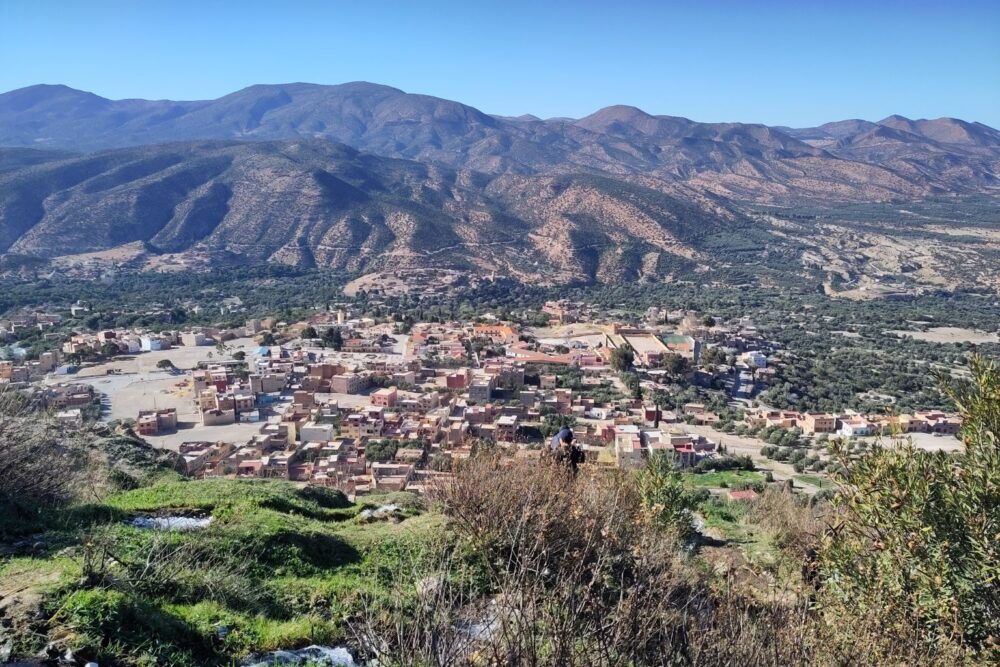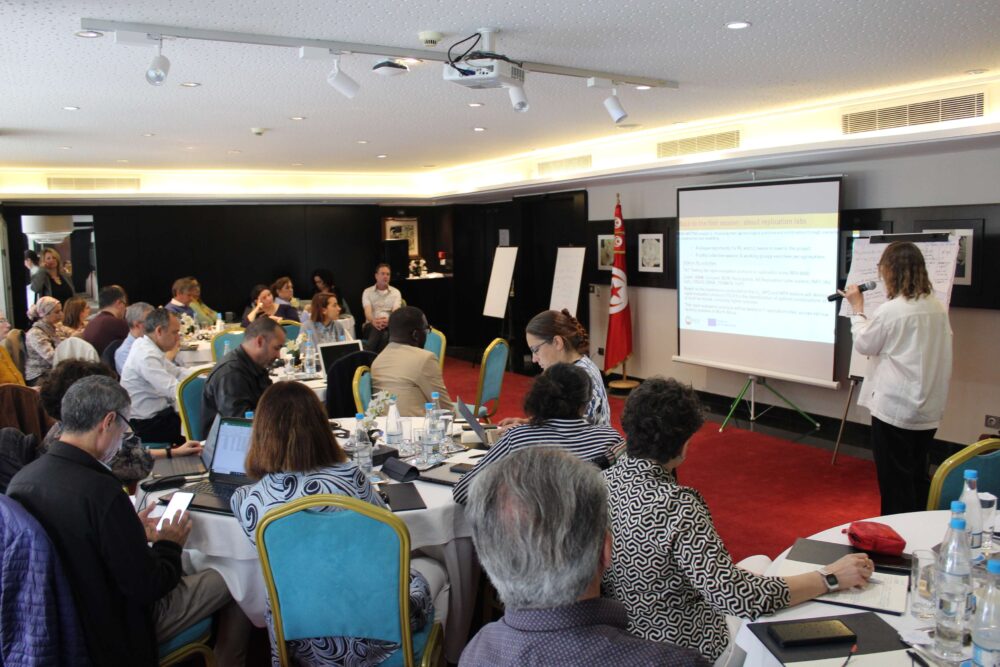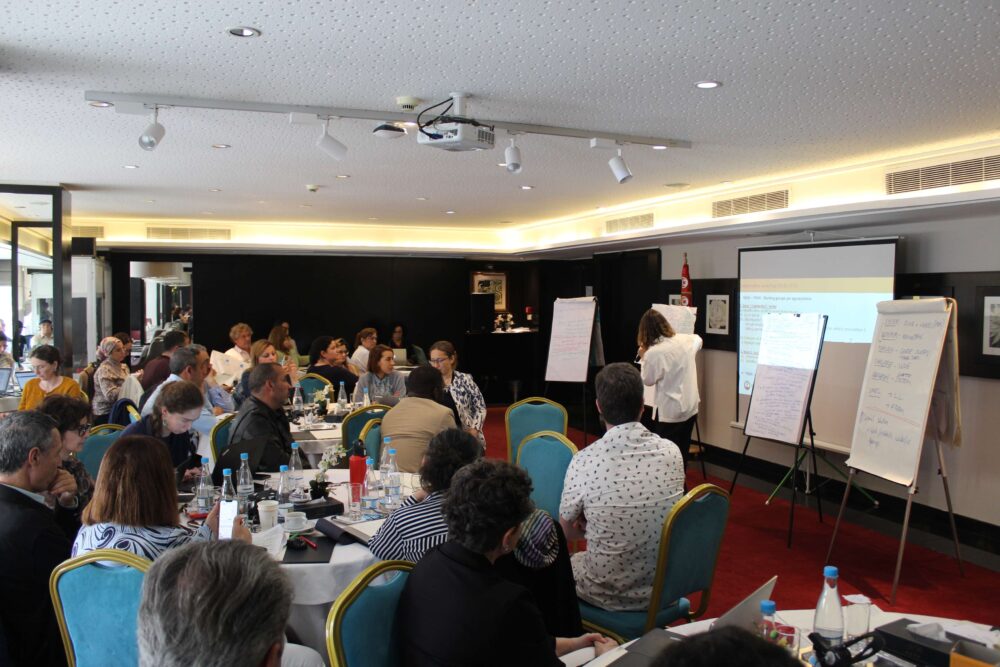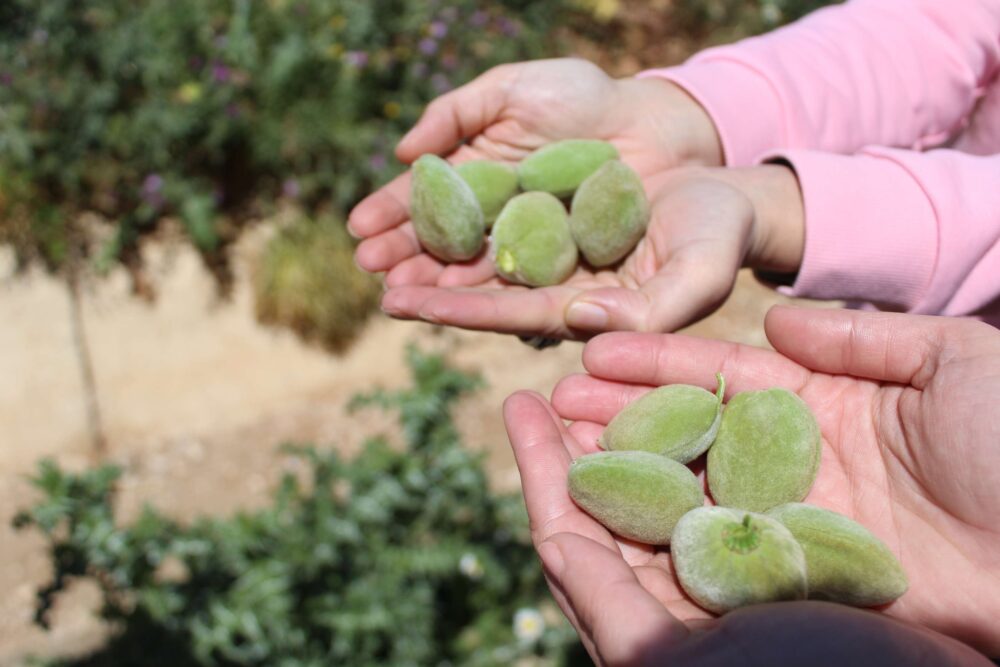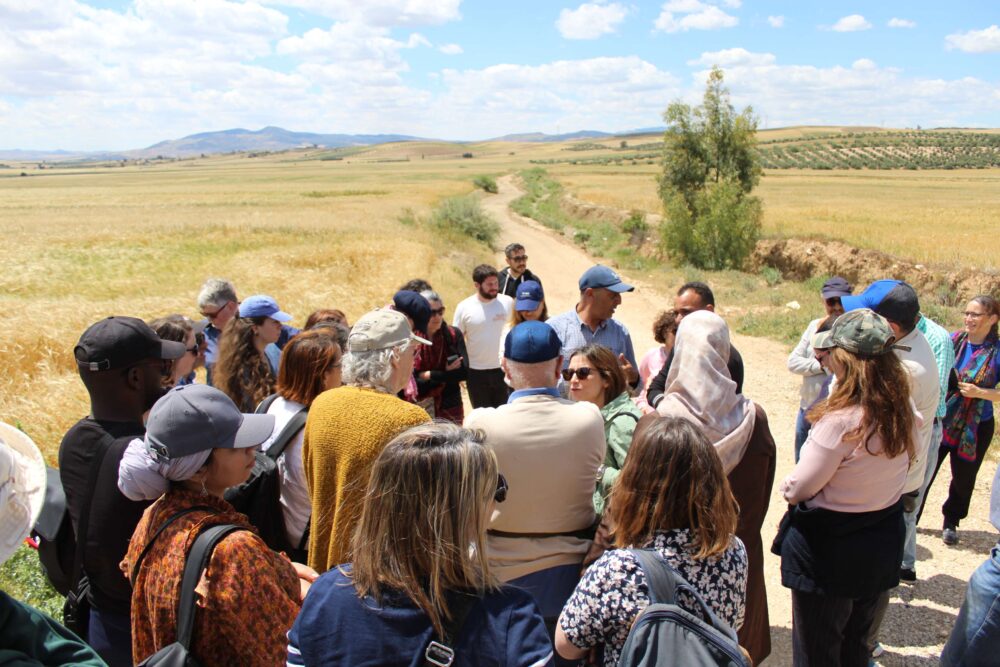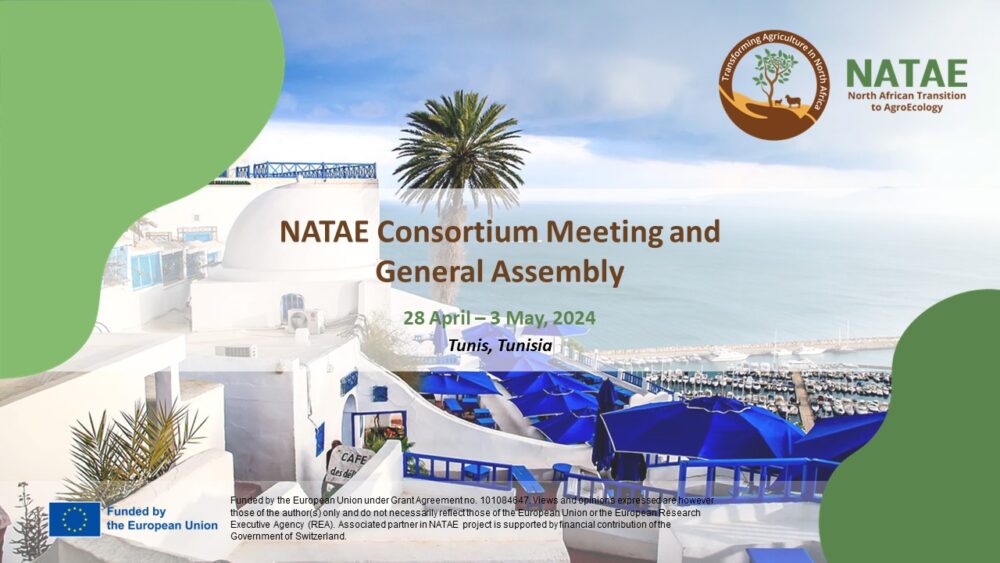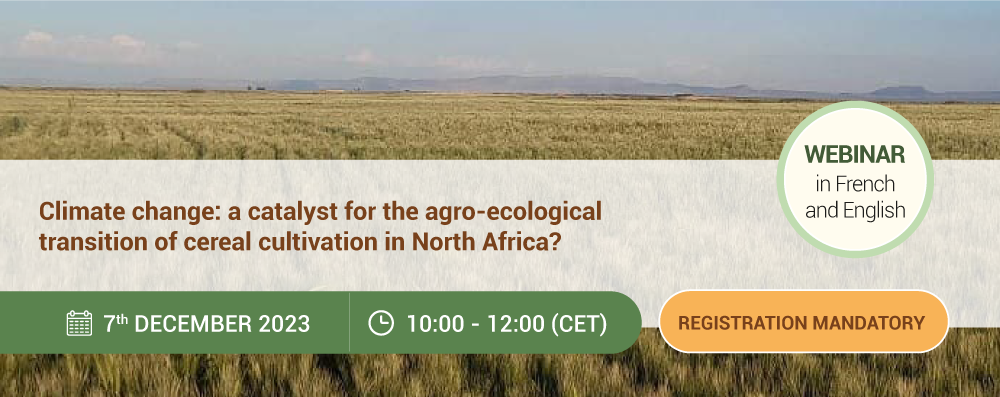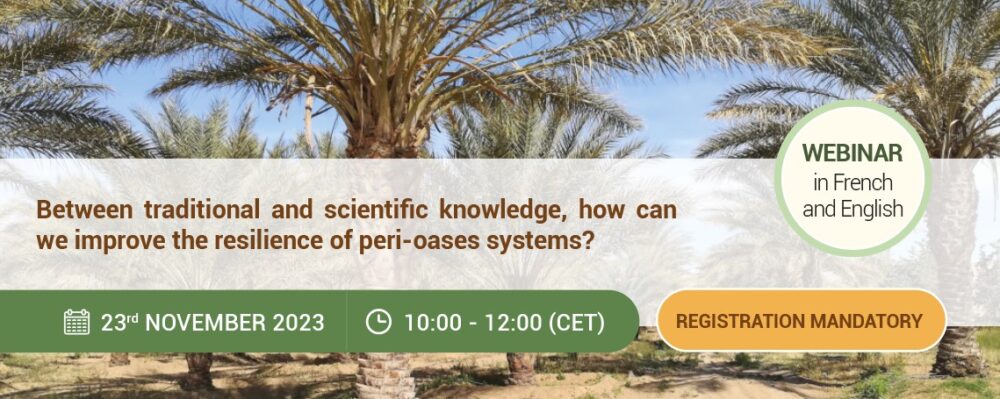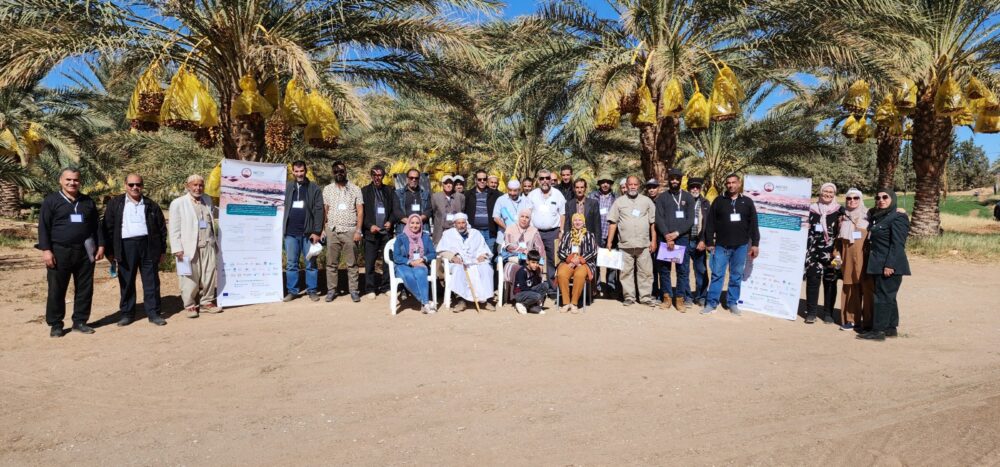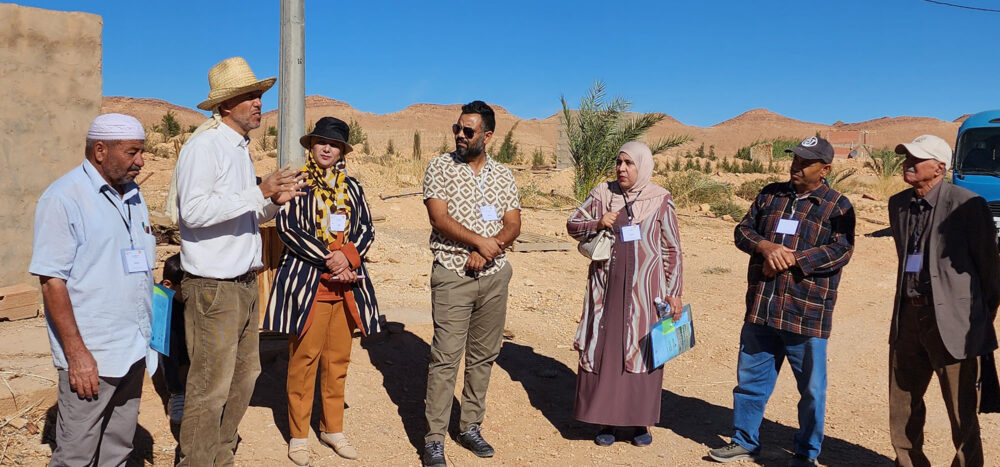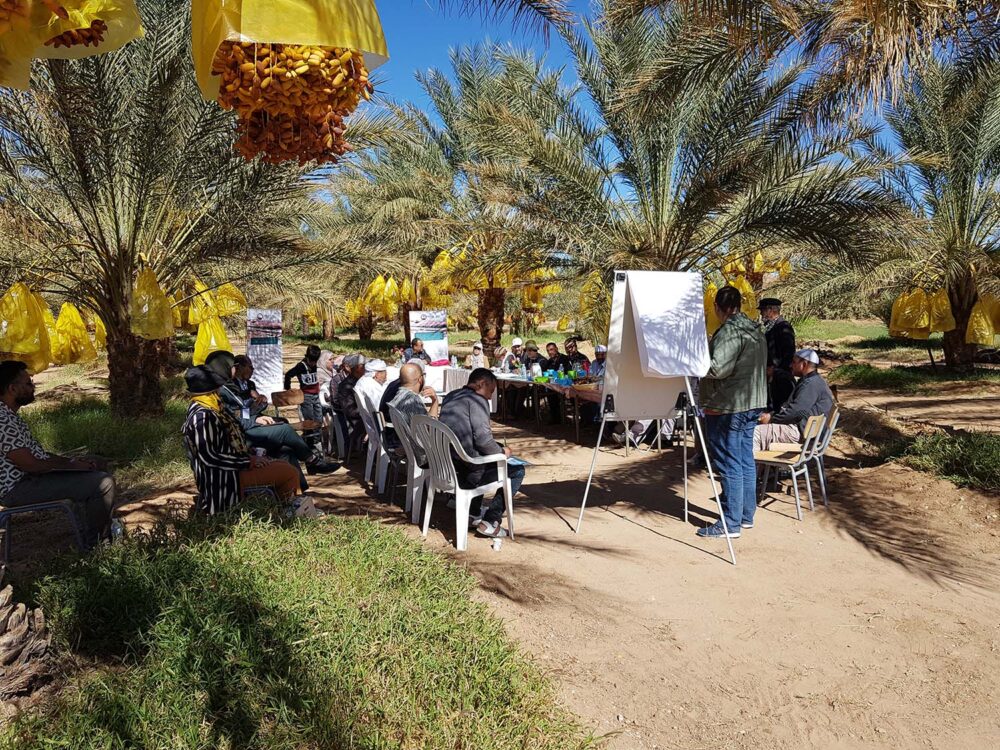Rich insights into the potentials and challenges of an agroecological transition in the Living Lab Skoura-MA have been gained during an extensive territorial diagnosis and the official Living Lab launch activities in 2023. Learning from that, researchers proposed an initial set of agroecological practices (AEP) to be explored in the Living Lab and to be discussed with farmers in more detail: the 1) association of olive trees and medicinal and aromatic plants (MAP), 2) traditional gravity irrigation and improvement options, 3) drip irrigation, 4) use of manure, and 5) use of shredded tree pruning residues.
Three farmer focus group discussions took place in February 2024 bringing together eight women of the local women cooperative processing MAP, four and six farmers respectively. Farmers exchanged on the advantages and disadvantages of the proposed AEPs and were subsequently asked to rate those AEP in an individual rating activity. The idea is, that suitable AEP combinations can increase positive and minimize negative effects of single practices in a synergistic way.
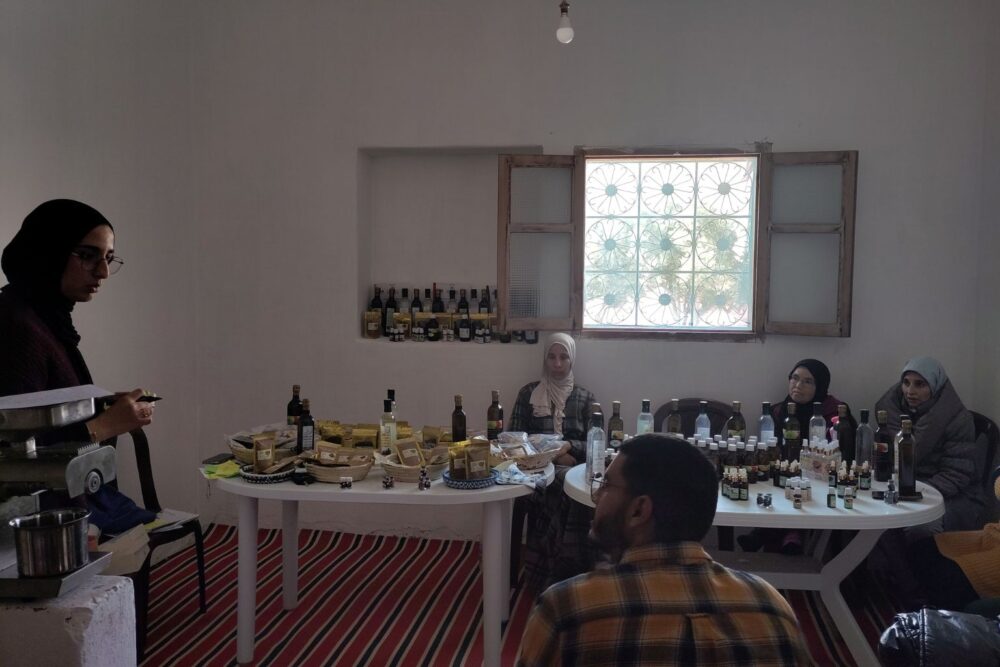
Concerns emphasized by farmers were among others the effect of practices on water use, crop development and yields, soil fertility and erosion, pest and disease development, as well as implementation constraints regarding equipment (e.g, wood shredders, processing equipment for MAP) and infrastructure (e.g., water storage basins) requirements.
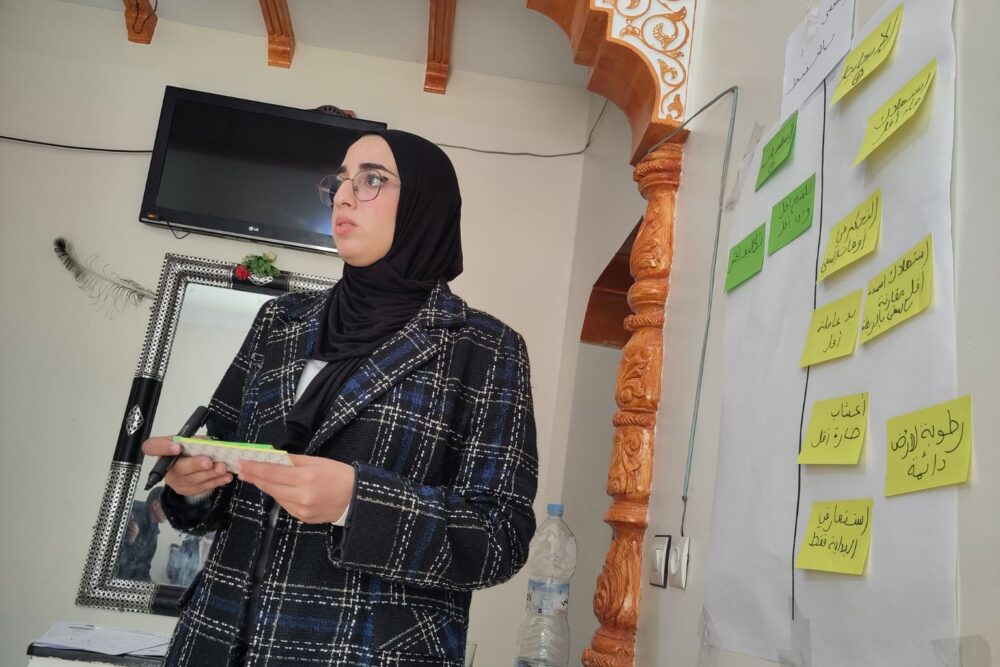
Farmers’ concerns were taken up by the representative board on the 20th of February 2024 gathering 9 stakeholders including farmers and cooperative members, representatives of regional and provincial agricultural governance institutions, elected municipality officials, and researchers of the National School of Agriculture in Meknes. Representative board members explored promising activities at Living Lab level that could help to address farmers’ concerns, such as training and farmer organization.
Next steps in the Living Lab aim to set up initial on-farm experimentation plots to explore the effects of promising AEP combinations and to organize farmer field schools facilitating the knowledge exchange among farmers and researchers.
